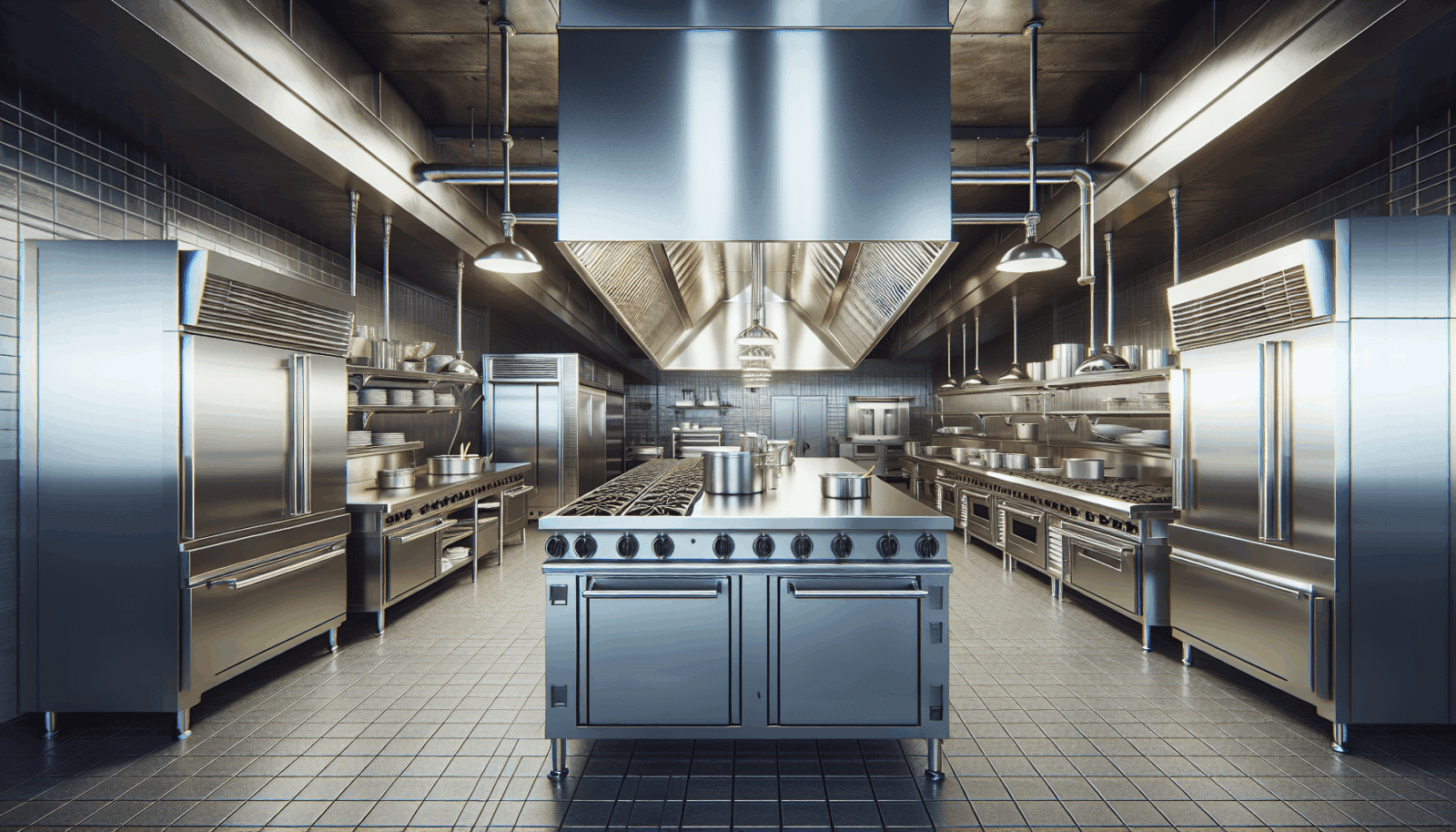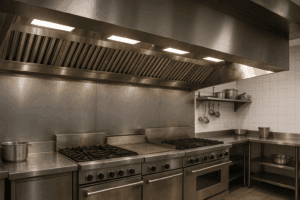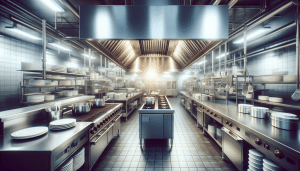Industrial Kitchen Hood Cleaning is crucial for maintaining a safe and efficient cooking environment. As Utah Hood Cleaning, serving homeowners across Salt Lake, Davis, and Utah County, we understand how daunting it can be to keep those Kitchen Hoods spick and span. In this blog, we’ll enlighten you on the best practices and various methods to achieve perfectly clean kitchen hoods. Let’s dive right in!
The Importance of Routine Cleaning
Clean kitchen hoods are not just about aesthetics; they ensure the safety and well-being of everyone. Over time, Grease and grime build-up can become hazardous. Regular cleaning helps prevent fire hazards and keeps the environment smelling fresh and welcoming.
Routine maintenance saves you money in the long run by avoiding costly replacements and repairs. Plus, it extends the life of your kitchen appliances. So, it’s a win-win!
Signs Your Kitchen Hood Needs Cleaning
Not sure if it’s time to call in the professionals? Keep an eye out for these tell-tale signs. If there’s an unpleasant odor emanating from the hood, it’s time for cleaning. Also, a noticeable grease build-up or reduced efficiency in smoke and heat extraction are red flags.
Other signs include excessive noise from the hood or visible grease dripping from it. Addressing these issues promptly can help maintain a safe and clean kitchen environment.
The Cleaning Process
First things first, unplugging or shutting off power to the hood is crucial for your safety. Next, we remove the filters and soak them in a degreasing solution. While the filters soak, the hood’s exterior is wiped down with a suitable cleaning agent.
Then, we scrub the interior, including the fan blades and ducts. Finally, rinse everything thoroughly and reassemble the hood. Voila! Your kitchen hood is as good as new.
Deep Cleaning vs. Regular Cleaning
Deep cleaning involves a thorough scrub-down of the entire hood system, including hard-to-reach spots. This is typically done a few times a year and tackles stubborn grease and grime.
Regular cleaning is lighter and focuses on easily accessible areas. It’s suitable for maintaining cleanliness between deep cleanings.
DIY Cleaning: What You Need to Know
Sure, you can handle some cleaning tasks yourself! Equip yourself with a degreaser, scrub brushes, gloves, and a soft cloth. Always read manufacturer guidelines for your specific hood model.
However, DIY can only go so far. For a comprehensive clean, it’s best to hire professionals who have the necessary tools and expertise.
Benefits of Professional Cleaning Services
Professional services offer a thorough clean that simply can’t be matched by DIY methods. Experts have specialized tools that ensure complete grease and grime removal, improving air quality and safety.
They also inspect your hood system for potential issues, providing you peace of mind. Trusting professionals can enhance the longevity and efficiency of your kitchen hood.
Choosing the Right Cleaning Agents
It’s essential to use degreasers and cleaning agents that are safe for your hood materials. Look for non-toxic, biodegradable products that effectively cut through grease without damaging surfaces.
Avoid abrasive cleaners that can scratch the hood. Consulting with professionals can help you choose the best products suited for your hood type.
Best Practices for Maintaining Clean Hoods
Implementing best practices can make your job much easier. Here are the top five recommendations:
- Ventilate Your Kitchen: Ensure proper ventilation to reduce grease accumulation.
- Regular Inspections: Frequently check for any signs of wear and tear.
- Timely Filter Replacement: Change or clean filters as per manufacturer guidelines.
- Weekly Wipes: Wipe down the exterior of the hood at least once a week.
- Professional Services: Schedule professional cleanings annually or semi-annually.
How Often Should You Clean Your Kitchen Hood?
The frequency of cleaning depends on how often you use the kitchen. For heavy usage, a monthly clean is ideal. For moderate usage, every three months should be sufficient.
For light usage, twice a year might be enough. Professional advice can help tailor a perfect schedule for your unique needs.
Common Cleaning Mistakes to Avoid
Don’t over-wet electrical components; it’s a major safety hazard. Avoid using harsh chemicals that can damage the hood’s finish. Ignoring fan blades and duct areas can lead to incomplete cleaning and persistent smells.
Lastly, never skip professional services. DIY can’t replace the thoroughness and expertise that professionals bring.
Ensuring Safety Measures During Cleaning
Always wear gloves and masks to protect yourself from harsh chemicals. Unplugging or shutting off power is essential to avoid any electrical mishaps. Make sure the area is well-ventilated.
Proper safety measures ensure not only your safety but also a more efficient cleaning process. Following these tips can make your cleaning experience worry-free.
Conclusion
Industrial kitchen hood cleaning might seem overwhelming, but with the right knowledge and a bit of help from Utah Hood Cleaning, it becomes effortless. For a perfectly clean kitchen hood, Contact Us by phone # 801-853-8155 or Request a Free Quote.




